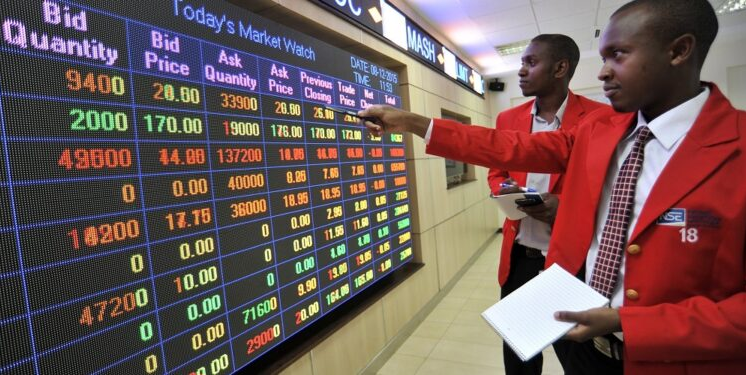Kenya’s investing terrain has radically altered in recent years, with more people engaging with financial markets using nothing more than a smartphone and an internet connection.
No matter if you’re in Nairobi, Kisumu, or beyond, investors now have real-time access to the Nairobi Securities Exchange through mobile-based tools. These platforms offer live pricing, fast order execution, and detailed portfolio tracking.
With smartphone penetration now at 80.8%—representing over 42 million users—digital access to markets has become a reality for most Kenyans.
Access to global markets has expanded alongside local offerings, permitting investors to trade a wide range of assets, from equities and indices to currency pairs and contracts for difference.
What’s emerging is a powerful trend toward market accessibility; anyone with basic digital skills and a small initial deposit can begin to participate. Thanks to simplified onboarding and expanding education resources, a broader segment of the population is now involved in Kenya’s investment space.
If you’re just starting or fine-tuning a long-term strategy, this new generation of tools gives you the agility to participate in markets that once felt distant or exclusive.
How the Platforms Were Developed
The groundwork for this digital shift was laid more than a decade ago, when the Nairobi Securities Exchange adopted an Automated Trading System that replaced physical trading floors.
Since then, Kenya’s Capital Markets Authority (CMA) has enforced regulatory guidelines to govern digital brokerage services, including investor protection measures and fraud prevention protocols.
The real acceleration, however, came with the spread of smartphone usage and mobile banking. Brokers now integrate mobile wallets for deposits and withdrawals, making it easier than ever for you to move funds in and out of your trading account.
You now have access to widely used digital trading interfaces that offer advanced charting tools, automated trading options, and real-time news feeds. For many users, the ability to buy fractional shares has been a game-changer.
Instead of saving for months to buy a single stock, you can now own slices of high-value companies instantly. This is how online trading in Kenya has become more inclusive—by shrinking barriers to entry and expanding the kinds of assets that are realistically within reach.
Also Read: What Ruto Should Do to Unlock Kenya’s Immense Tourism Promise
Expanding Access to Global Markets
What makes this shift even more meaningful is the level of access now available to global financial markets. You can buy U.S. equities and exchange-traded funds (ETFs) just as easily as you’d buy shares in well-known domestic firms.
With a few taps on your phone, you can invest in top tech companies, diversified index funds, or even thematic ETFs focused on areas like green energy or artificial intelligence.
Domestic stocks remain a core focus for many investors, and the NSE continues to provide opportunities for long-term growth. Yet foreign exposure is helping everyday Kenyans build more diversified portfolios.
Most platforms include real-time quotes, research insights, and educational content like webinars or demo accounts so you can test strategies before risking your capital.
The integration of fast withdrawals and low deposit thresholds makes it simple to manage your cash flow. You’re able to respond to news or price movement as it happens, a key advantage as stock trading in Kenya becomes increasingly time-sensitive and strategy-driven.
Whether you’re seeking growth, dividends, or hedging, the instruments now support smarter decisions based on your personal goals.
Challenges Amid Rapid Growth
With all these advances, however, come new risks that demand your attention. First, market volatility remains a serious consideration.
Fast-moving global events can cause sharp swings in asset prices, and inexperienced investors may react emotionally or impulsively. You’ll need to develop patience and a well-defined strategy to avoid costly errors.
Second, cybersecurity threats are a growing concern. Fake broker sites, phishing emails, and weak passwords can expose your funds or data.
The best platforms offer two-factor authentication, encryption, and account monitoring, but your own caution matters just as much. Licensing is also crucial.
The CMA is tasked with publishing a list of licensed brokers, among other institutions; thus, sticking to those options is wise, especially as unlicensed platforms sometimes target first-time investors.
Liquidity also varies depending on the stock or asset class. Some shares on the NSE trade at low volumes, which can result in larger bid-ask spreads and slower execution.
Lastly, while trading fees are dropping thanks to competition, they still vary widely. Comparing platforms can help you avoid unnecessary costs.
Navigating these challenges requires diligence—but doing so empowers you to take full advantage of this shifting terrain.
Also Read: Win for Small Investors As NSE Announces Changes in Trading Rules
Where the Revolution Is Headed
Looking ahead, Kenya’s digital brokerage ecosystem is expected to deepen and diversify. Platforms are beginning to adopt artificial intelligence and predictive analytics to support smarter execution and market forecasting.
New tools are emerging to help you automate trades, rebalance portfolios, and even assess risk based on personalized thresholds.
Blockchain applications and tokenized assets are also being explored, which could increase transparency and reduce settlement times. The rollout of 5G networks promises lower latency and faster data streams, which would benefit mobile trading.
Even more seamless integration between mobile wallets and trading accounts is on the horizon, cutting down the time it takes to fund or withdraw from your account.
Educational campaigns, led by both regulators and brokerages, are scaling up to help investors—especially newer ones—build the financial literacy needed to trade with confidence.
With fractional investing becoming more refined and access to global markets continuing to expand, the possibilities are growing.
Real-time stock trading in Kenya is no longer a niche activity—it’s becoming part of everyday financial life. For anyone ready to engage, the tools are more accessible, the markets more connected, and the opportunities more diverse than ever before.
Follow our WhatsApp Channel and X Account for real-time news updates.







































































